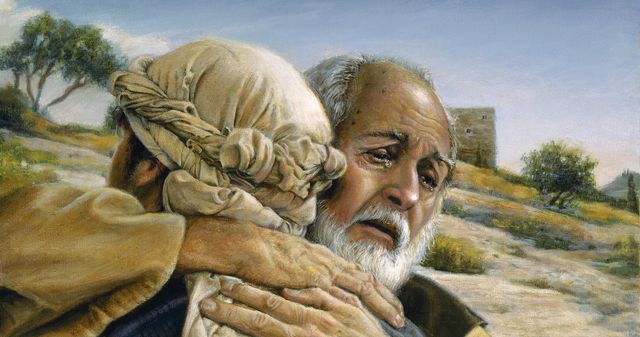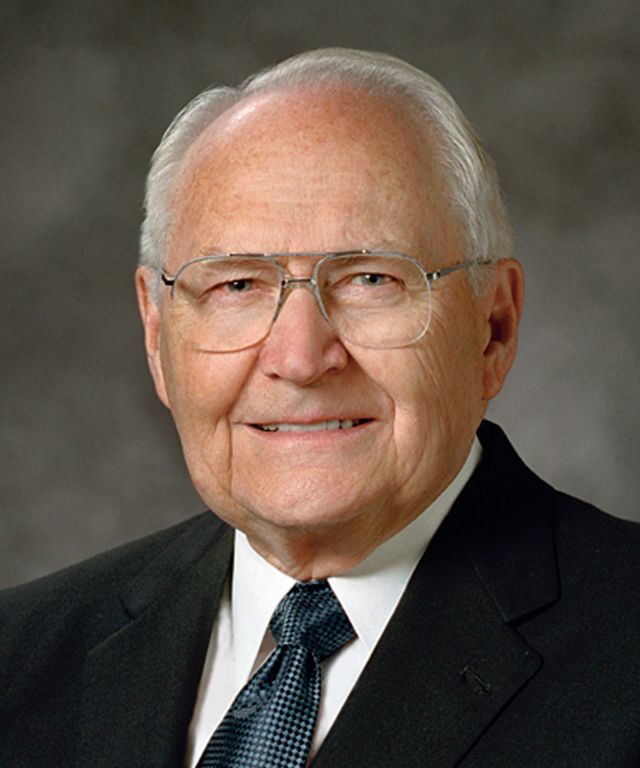
Fill out the form below. Be as descriptive as possible. When you are finished, start reading D&C section 20 or the following talk: “Joy and Spiritual Survival“
Eternity Is Our Field

Fill out the form below. Be as descriptive as possible. When you are finished, start reading D&C section 20 or the following talk: “Joy and Spiritual Survival“

Group Leader: Assign some group members to answer question 1 and 2 and answer the questions in their Learning Journals. Make sure everyone is preparing to share what they learn with the rest of the group.
Question 1: Read D&C 14:1-11. Look for the type of qualities for which the Lord is looking in those who work for Him. When you find a quality, record the verse in which you found it and the quality in your Learning Journal.
Answer the following question in your Learning Journal and be prepared to discuss this in your group:
Create some “statements of power” regarding serving the Lord, using the following prompts:
Question 2: Every job uses tools to help get the job done. Read D&C 14:1-11, looking for the different tools we must learn to use as we serve the Lord. Make a list of these tools in your Learning Journal and make sure to record the verse where you find the tools in your Journal.
Answer the following question in your Learning Journal and be prepared to discuss this in your group:
From your list, which tool do you think is most important in doing the Lord’s work. Why?
Create some “statements of power” regarding serving the Lord, using the following prompts:
Group Leader: When your group comes back together, allow time for members to share how they answered the questions and to share a “statement of power.”

1st Reading: Overview/Airplane Mode
While working on the Book of Mormon translation, Joseph Smith and Oliver Cowdery learned that Jesus Christ gave the Nephites authority to baptize. As they prayerfully sought to know more, Joseph and Oliver were visited by John the Baptist and later Peter, James, and John, who were sent to restore priesthood authority to the earth.
Read the “Section Heading” for D&C 13. Look for the “who, what, where, when and how and why?
Find “Harmony, Pennsylvania” in the maps section of the Gospel Library/Study Helps/Church History Maps section.
This event took place near the Susquehanna River, near Harmony, Pennsylvania. You can see a picture of this place here.
Why was it important that the Lord send John the Baptist specifically to Joseph Smith and Oliver Cowdery? Look in the “Guide to the Scriptures” section of the “Study Helps” in the Gospel Library App. Before moving on, write your answer to this question on a piece of paper and give it to Brother Crockett, who will ensure your answer is correct.
Read D&C 13:1 individually, looking as an overview. Look for any words or phrases that may be difficult to understand, or to which you do not know the meaning. When done reading, share as a group any questions or concerns and answer them.
2nd Reading: Looking for spiritual truths, messages, and doctrines
Remember: A doctrine is a principle which is founded on truth. Doctrines do not change over time, can be applied to a wide variety of circumstances and help us make decisions and guide our lives.
Read D&C 13:1. Give your group members time to individual read verse 1. What are some truths found in this verse? Discuss what you’ve found as a group, and invite group members to make a collective list of truths in their individual learning journals.
As a group, chose one truth upon which to focus. Then, ask some questions about the verse that will help apply the truth to our lives today. For example:
Truth: Those who hold the priesthood are fellow servants. Why would the Lord want priesthood holders to know they are serving with angels? John uses the word “servant.” What does the use of this word teach us about the priesthood?
Invite group members to individually write the chosen truth and question in their own Learning Journal. Then, give the group time to ponder and then write a response to that question. When done, invite members to share what they wrote. Compare each response to the definition of a doctrine. If what they wrote is (1) true, (2) won’t change over time (3) can be applied to a wide variety of circumstances and (4) help make decisions or guide their lives, then CONGRATULATIONS! They found a DOCTRINE! 🙂
Have each group member fill out the questionnaire below and submit it so Brother Crockett can see your work.
President Russell M. Nelson
The adversary never stops attacking. So, we can never stop preparing! The more self-reliant we are—temporally, emotionally, and spiritually—the more prepared we are to thwart Satan’s relentless assaults. …
I am not saying that the days ahead will be easy, but I promise you that the future will be glorious for those who are prepared and who continue to prepare to be instruments in the Lord’s hands. (Russell M. Nelson, “Embrace the Future with Faith,” Ensign or Liahona, Nov. 2020, 75–76)
We have been promised that “if [we] are prepared [we] shall not fear” [Doctrine and Covenants 38:30]. This assurance has profound implications today. The Lord has declared that despite today’s unprecedented challenges, those who build their foundations upon Jesus Christ, and have learned how to draw upon His power, need not succumb to the unique anxieties of this era. (Russell M. Nelson, “The Temple and Your Spiritual Foundation,” Liahona, Nov. 2021, 94)
President Dallin H. Oaks
We need to make both temporal and spiritual preparation for the events prophesied at the time of the Second Coming. And the preparation most likely to be neglected is the one less visible and more difficult—the spiritual. (Dallin H. Oaks, “Preparation for the Second Coming,” Ensign or Liahona, May 2004, 9)
Elder Quentin L. Cook
The storms and temptations of this life are often unpredictable. But this we know: they will come! In order to overcome the challenges and temptations that each of us inevitably faces, it will require righteous preparation and the use of divinely provided protections. We must determine to be temple worthy regardless of what befalls us. If we are prepared, we shall not fear. (Quentin L. Cook, “Shipshape and Bristol Fashion: Be Temple Worthy—in Good Times and Bad Times,” Ensign or Liahona, Nov. 2015, 39)
Parables of the Lost

Here is the link for Tuesday’s Assignment: Luke 15
Work through the assignment, and then fill out the form below. Submitting the form will give you credit for Tuesday.
Recognizing my individual worth
On a page in your study journal, consider making a simple drawing of a shepherd holding a sheep or a father hugging his son. Use the space surrounding this drawing to record the following:
Fill out the form below so that Brother Crockett can get to know you a little better.

Salt has long been used to preserve food, add flavor and to purify. At the time of Christ, salt was more valuable than gold. If contaminated by other elements, salt loses its savor and becomes ineffective, or “good for nothing.”
As believers in Christ, He has a special purpose for us. We are to add flavor to and purify our surroundings. Think of the characteristic about which Jesus taught in Matthew 5:3-13. How much better would the world be if Christians flavored the world with more meekness and humility?
STAY SALTY!

Scenario:
Imagine that you have a friend named Meghan who is a member of the Church, but her mother is not. Her mother believes in Jesus Christ and the Bible but doesn’t belong to any particular church. Meghan asks you, “Can’t my mother go to heaven without being baptized if she lives a good life?”

(2 Minutes) Read paragraphs 5–7 of the section “Acquiring Spiritual Knowledge” in the Doctrinal Mastery Core Document (2022). On your paper, write down words and phrases that could help YOU answer Meghan’s question.
(2 Minutes) Discuss with your group members what you wrote down and how these words/phrases would be helpful in this scenario.
(2 Minutes) What specific things could you do to invite MEGHAN to act in faith?
(2 Minutes) Read paragraphs 8–10 in the same section of the Doctrinal Mastery Core Document. On your paper, write down words and phrases that could in answering Meghan’s question.
(4 Minutes) Discuss with your group SPECIFIC WAYS you could use what you know about the Plan of Salvation to help form an answer to Meghan’s question.
(2 Minutes) Read paragraphs 11–12 in the same section of the Doctrinal Mastery Core Document. On your paper, write down words and phrases that could help answer Meghan’s question.
(2 Minutes) Discuss with your group members what you wrote down and how these words/phrases would be helpful in this scenario.
(10 Minutes) Use the Divinely Appointed Sources below to find doctrinal answers to Meghan’s question. Make sure each person in the group has an assignment and that each person contributes at least ONE truth or doctrine that will be used in your final answer. Write the person’s name next to their assignment.
“Baptism” Bible Dictionary _____________________
“Baptism” Topical Guide (find FOUR scriptures that help understand what baptism is and why it is important) ________________________
Gospel Library App >> Gospel Topics >> Baptism
(7 Minutes) Give everyone a chance to share what they discovered. Then, doing your best to use something from EACH group member, decide from Start to Finish how you would answer Meghan’s question: “Can’t my mother go to heaven without being baptized if she lives a good life?” You only have THREE MINUTES to teach her. Make sure to focus your responses on “Examining Questions With An Eternal Perspective” and using “Divinely Appointed Sources.” And also include one thing you could do to invite Meghan to ACT IN FAITH.

Paintings such as “Christus Consolator” took much thought and preparation BEFORE the painting even began. The artist would have very specific purposes in layout, use of light and dark, characters and objects used, and positioning.
In this painting, Carl Block places Christ as the central figure. Where is Christ looking? Upon what is He standing? Notice the position of Christ’s arms and hands. What is Carl Block trying to convey about Christ with this painting?
Now look at the seven people surrounding Christ. Where are they looking? What expression is on their faces? What are they wearing? FYI: The woman wearing black to the right of Christ would be a widow. Why does one character have a staff? Why is one in chains?
Take a moment to review these seven characters and what they represent. With which characters can you relate? Why? If you could pick one character that would BEST represent your CURRENT relationship with Christ, which would it be? Why?
The world today is so saturated with doctrines of men that it is easy to forget and lose faith in that all-important account of the Savior’s life and ministry—the New Testament. This sacred volume is the centerpiece of scriptural history, just as the Savior Himself should be the centerpiece of our lives. We must commit ourselves to study it and treasure it!
Elder L. Tom Perry ““The Sabbath and the Sacrament,” Ensign or Liahona, May 2011, 6)

© 2026 Bro C’s Teaching Emporium
Theme by Anders Noren — Up ↑